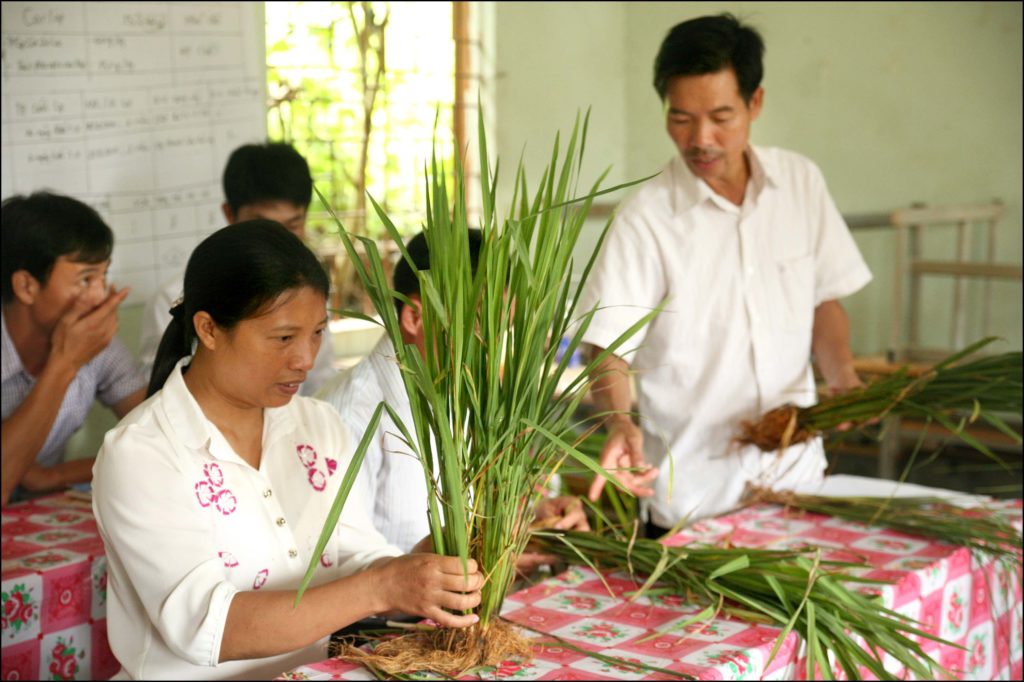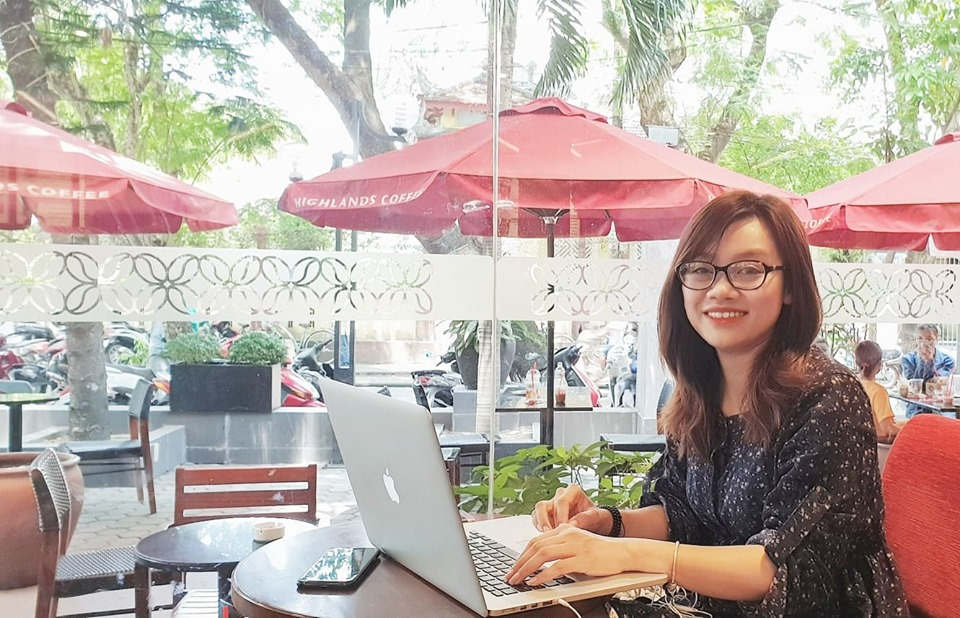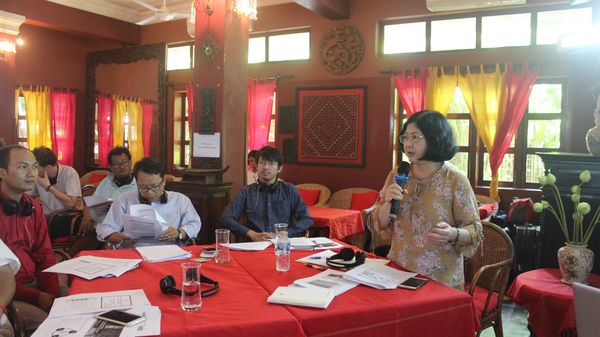For more than 25 years the Danish NGO, ADDA, has…
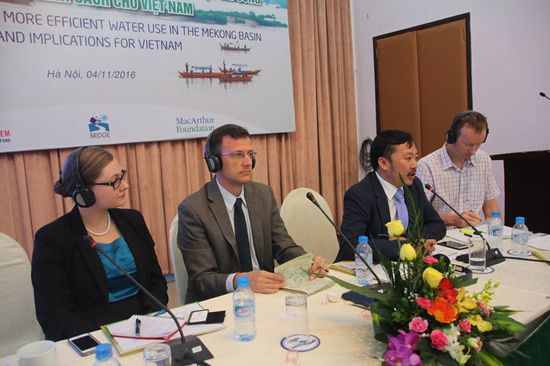
Panel Discussion about Vietnam’s Role in Taking Leadership to Collaborate on Water Use in the Mekong Basin
On November 4, PanNature along with the Henry L. Stimson Center and International Union for Conservation for Nature (IUCN) – hosted a panel discussion entitled “Opportunities for Efficient Water Use in the Mekong Basin and Implications for Vietnam.” The panel discussion brought together participants from domestic and international civil society organizations, government and ministry representatives, as well as foreign diplomats to share their perspectives and opinions related to hydropower development in Laos, a landlocked country whoes ambition to become the “battery of Asia” brings concerns about the environmental sustainability of the entire region.
Laos’ goal of economically transforming itself through the development of multiple hydropower dams along the mainstream and tributaries of the Mekong River has caused tensions and unease in the region, in particular for Vietnam. Vietnam’s Mekong Delta lies at the end of the Mekong River, and the construction of hydropower dams in Laos and Cambodia threatens the well-being of the Delta as well as the roughly 20 million people who live there. The discussion at this event centered around the Stimson Center’s recent “Letters from the Mekong” report, and aimed to gather feedback and comments on how Vietnam can best situate itself to mitigate the economic, political, social, and environmental costs of Laos’ decision to develop hydropower.

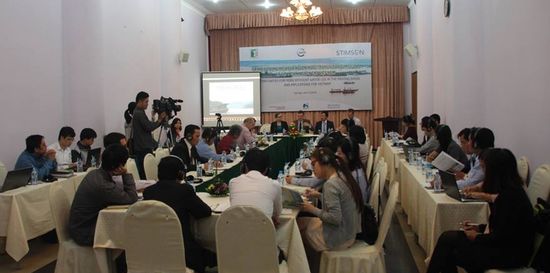
After an introduction by Trinh Le Nguyen, Executive Director of PanNature, Brian Eyler and Courtney Weatherby of the Stimson Center provided their key realizations and recommendations for how Vietnam can move forward. While Laos has begun construction and completed 29 dams in the basin, the Stimson Center representatives explained how there was still time to think creatively and engage with Laos on alternatives to hydropower development, such as the deployment of renewable energy, construction of a national power grid, and influencing which dams would ultimately be constructed and where. Given its rising energy demand, Vietnam is at a timely crossroads to play a crucial role in collaborating with the Laos Government, in particular through a power purchasing agreement. The Stimson Center representatives as well as Jake Brunner of IUCN agreed that Vietnam would receive many benefits from purchasing energy from Laos. For instance, Vietnam could take a more active approach to energy planning within Laos as well as receive a seat at the table to mitigate the environmental impacts of hydropower on the Mekong Delta.
Furthermore, the panel discussion presenters stressed the importance of demonstrating to Laos that many of the hydropower projects are not commercially viable and would lead to more costs than profit. Overall, participants shared an understanding about the importance of proposing alternatives to the Laos Government and offering to lend expertise and knowledge to resolve the geopolitical situation within the region. Only through regional cooperation, meaningful leadership, as well as a strategic, yet creative, approach can Vietnam realize its goals of protecting the Mekong Delta as well as deepening its relationship with Laos.
Panel discussion summary and some video clips on the event:
- Strategic Basin-wide Energy Planning in Laos and Recommendations for Policy Responses for Vietnam – Brian Eyler and Ms. Courtney Weatherby, Henry L. Stimson Center:
- The Re-immergence of Water Diversion Projects in the Lower Mekong – Nguyen Nhan Quang, PanNature’s Consultant:
- Comments on cooperation mechanisms and perspectives on water in the region – Mr. Jake Brunner, IUCN:

